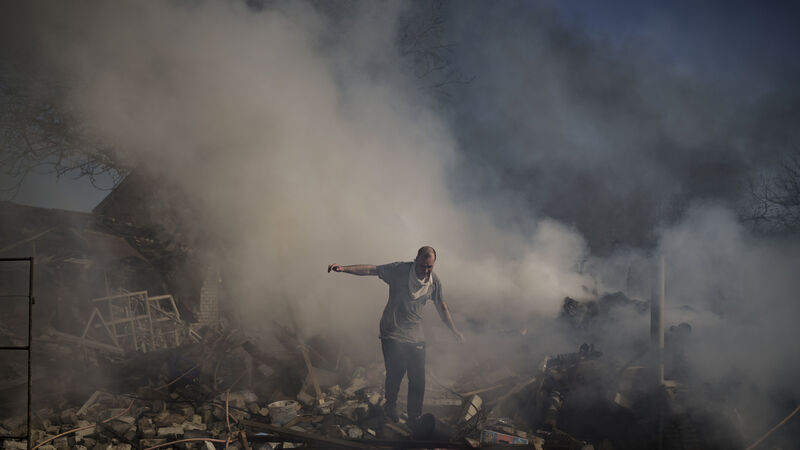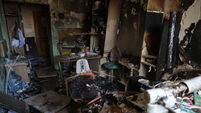Daniel McConnell: Very fabric of Irish social cohesion to be tested like never before

A man walks on the debris of a burning house, destroyed after a Russian attack in Kharkiv, Ukraine. In the initial aftermath of the invasion, the national sense of outrage was palpable here. Picture: Felipe Dana/AP

















